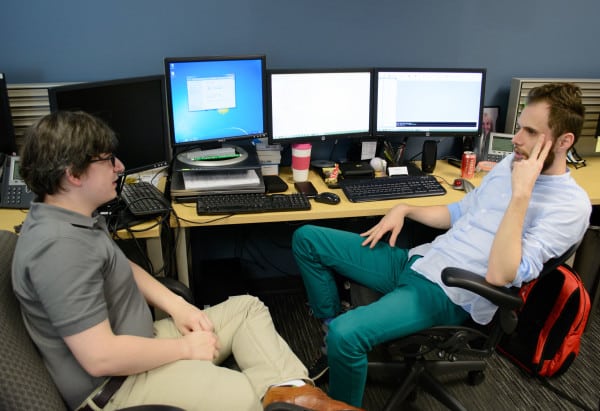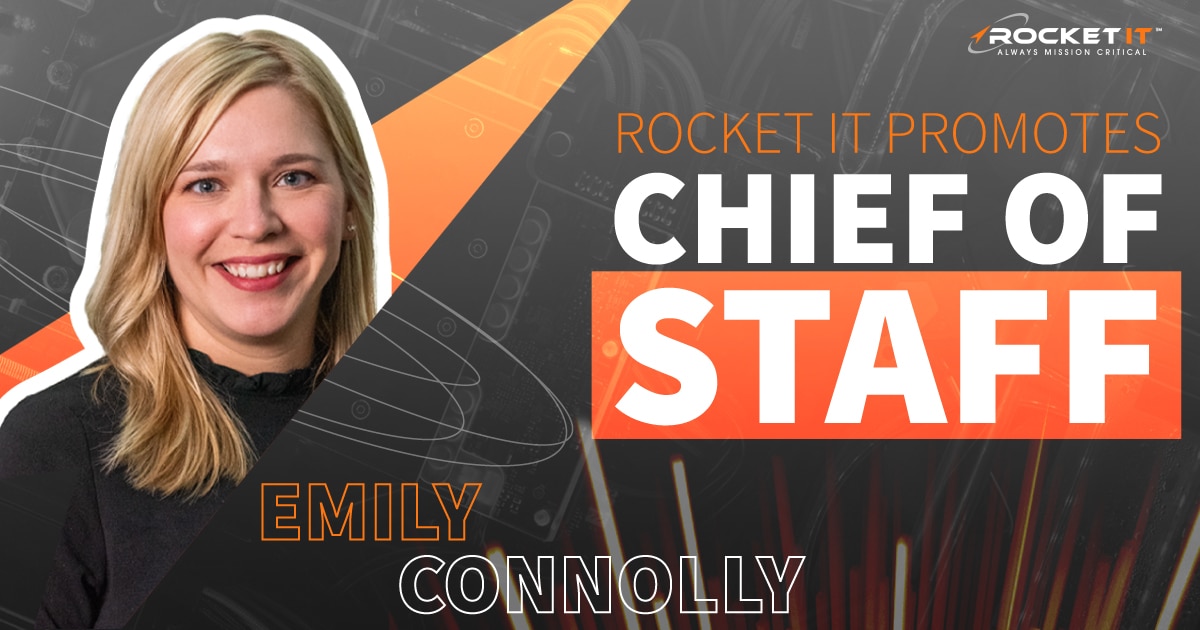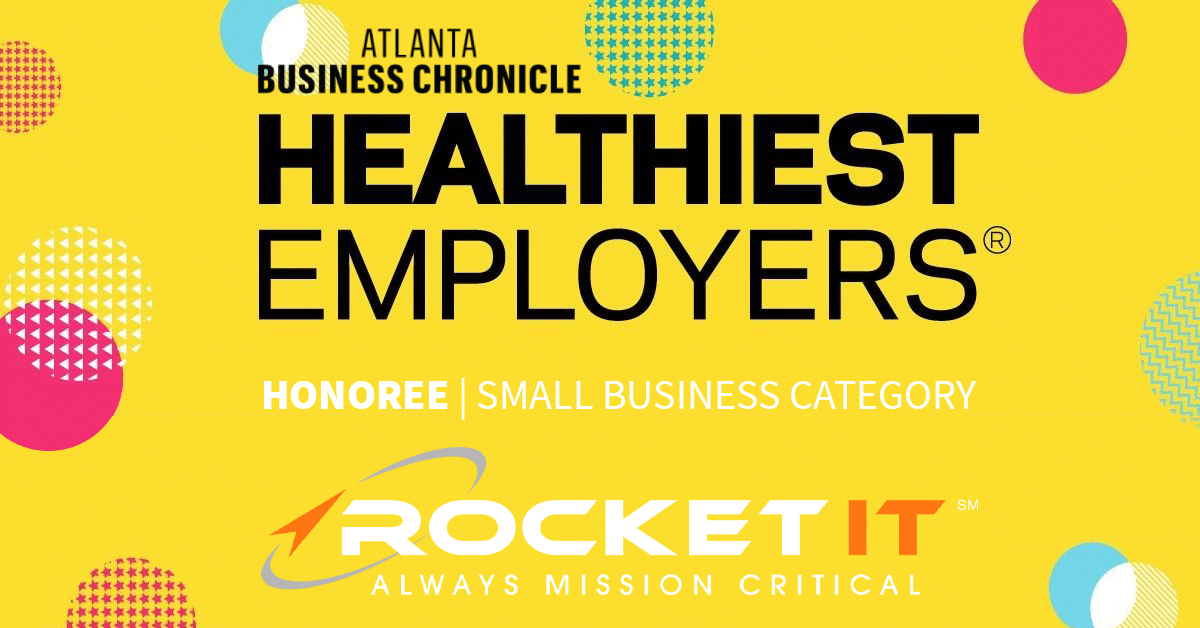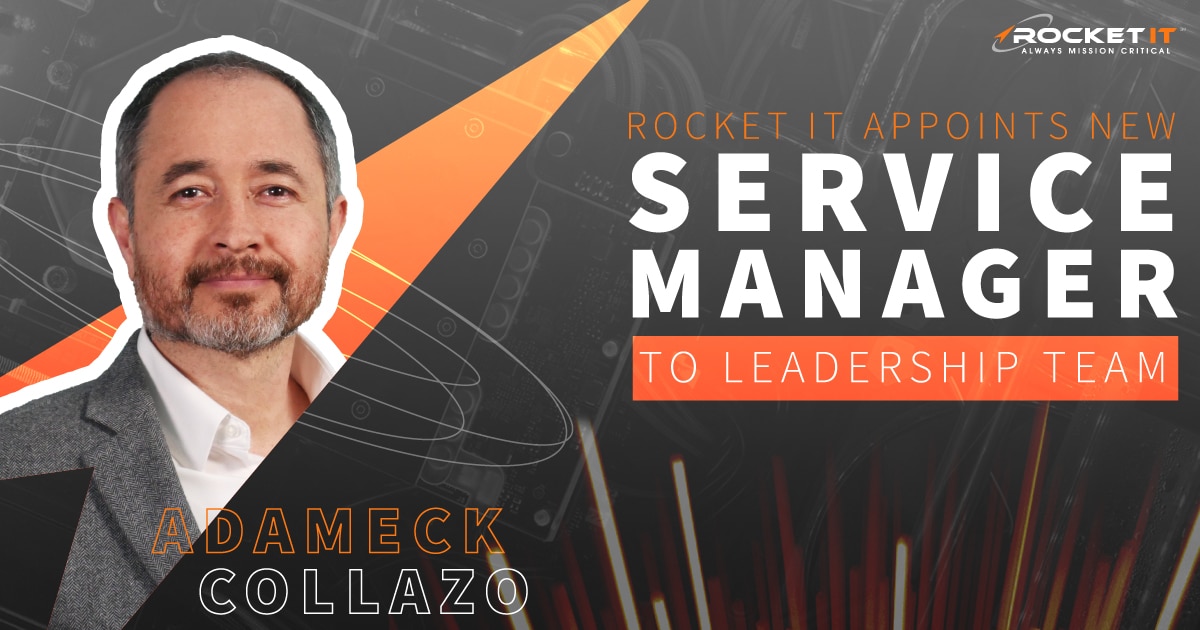From Intern to Full-Time: Why Your Employee Onboarding Process is Crucial to Success

How to stand out to potential new employees has been a topic before on the Rocket IT blog – through benefits from working remotely to building programs that help them thrive. But there is another way outside of the working hours of 9-5 to help your employees and attract the rockstars you’re looking for. Investing in your team’s development.
There’s an old anecdote in recruiting and retaining employees. One executive asked another, “What happens if we spend all this time and money training employees, and they leave?” The other executive responded, “What if we don’t, and they stay?”
It is costly to put an employee who hasn’t been fully trained into the field. To set your employees up for success, they need to have all the tools to do their job right. You wouldn’t give a mechanic a half-full tool set and wish them luck, would you? This is why your business should have a full on-boarding plan for each employee.
When I first joined the team at Rocket IT, I came on as an intern. Once I completed my internship, I was offered a full-time position (which I gladly accepted). To a lot of companies, that would have meant I’d already had my training, and I would have been thrust straight into the fire on my first day as a full-time employee. That didn’t happen at Rocket IT. Like all the other full-time employees in my office, I went through a 90 day on-boarding plan.
Using this process, new employees start out with the goal of spending their first 30 days focusing on training and learning all of the software and systems we use. Once they pass into the second 30 days, they still spend most of their time training; however, they start to be accountable for their key performance indicators (KPIs), but only at 1⁄3 of their eventual accountability. In the final 30 days, they are still training but are closer to 2⁄3 accountable for their KPIs. This way, when the first 90 days are up, they have ramped up to being fully equipped to handle anything we could throw at them.
Support shouldn’t end with the first 90 days either. Education is continuous; things are constantly changing and updating in every field, and we need to keep up with it. Employers who support their employees in continuing education, whether it be certification courses, conferences, or classes, are more likely to attract those amazing candidates who want to learn and grow (and if they don’t want that, you probably don’t want them).
Remember, when highlighting the benefits of working for your company, don’t begin and end with traditional bonuses, insurance, and vacation time. Your investment in their success through properly training them and offering ongoing opportunities for improvement will certainly attract the employees you want to retain for years to come.

Emanuel Purcar joined Rocket IT in the spring of 2015 as a Service Team Intern and is now a Remote Support Technician. He lives in Gwinnett with his wife and their newborn son, and he plays in a Christian band with his church.

Related Posts
Subscribe to Rocket IT's Newsletter
Stay up to date on trending technology news and important updates.

Find out if Rocket IT is the right partner for your team
Claim a free consultation with a technology expert.










